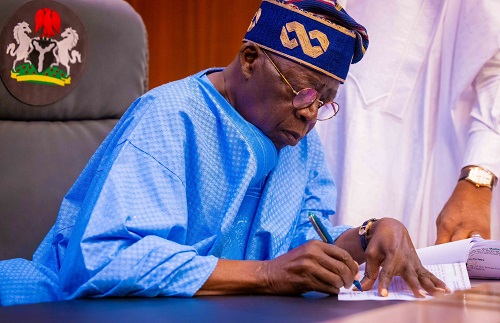Nigeria is a blessed country, just about to clock 60 years old. The country, since 1st October, 1960 have survived a lot of challenges, getting to the stage it is now.
There are some notable dates that shape up the country. These are days Nigerians will never forget, because of significant events that happened, some for good, some not so pleasant.
A few of them are as follows:
1st October, 1960: Nigeria gained independence from the British Colony on this day. It was a day the British surrendered the running of government to Nigerians, where Nigerians are in charge of themselves.
15th January, 1970: Nigeria fought a very ugly war against Biafria, led by Late Col. Odemeguw Ojukwu from 6 July 1967 – 15 January 1970, just six years after gaining independence. This war took a lot of lives and properties worth millions of naira were destroyed.

The war ended on 15th January, 1970, when Biafra surrounded to Col. Olusegun Obasanjo.
February 13, 1976: General Murtala Ramat Mohammed, who is till date adjudged as the best man ever to rule Nigeria, was killed on this date, just after one year in power. He was killed in Lagos, on his way to the office. Investigations revealed that the murder was led by Col. Dimka and all involved were killed openly in a Lagos beach by the Nigerian Army
October 1, 1979: Following the Nigeria Civil War, the country was trying to stabilize, and there was the need to return to democracy. Elections were conducted and President Shehu Shagari emerged as the first civilian President of Nigeria.
June 12, 1993: That day is now revered as Nigeria’s democracy day. It was the Presidential election, between Chief M.K.O Abiola and Bashir Tofa. That election, according to reports, is referred to as the best Nigeria ever conducted till date. M.KO Abiola won the election, but it was annulled by General Ibrahim Babangida, leading to wild protests across the country.
June 4, 1996: The senior wife of the winner of the 1993 election was killed in Lagos, from a machine gun fire. Investigations revealed that the killing was carried out by six men. Her driver also died.
This sparked outrage in the country, and years later, the former Chief Security Officer to General Sani Abacha, Hamza Al-Mustapha and Kudirat’s personal assistant, Alhaji Lateef Shofolahan were sentenced to be hanged for the murder. They were later released on appeal by a court in Lagos.
May 29, 1999: Nigeria, before this date had returned to military rule, and was returning to democracy. Elections were conducted and President Olusegun Obasanjo emerged winner. Nigeria has since then remained a democratic state.
27 January, 2002: A massive explosion happened in Ikeja Cantonment, Lagos, leading to loss of lives.A fire broke out in a street market being the base, which was also home to the families of soldiers, and the fire spread to the base’s main munitions store, causing an enormous explosion. This blast killed many of the base staff and their families, and at least 5,000 people were injured in the disaster, with over 12,000 left homeless.










